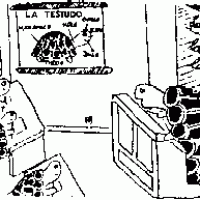Žinutės: 18
Kalba: English
Français (Rodyti profilį) 2009 m. sausis 24 d. 22:39:26
I thought I made a thread on this, but I can't find it. Maybe I clicked "preview" instead of "submit" and clicked away.
Anyways, I am having problems saying the "sc" together. For example, "sciencisto" or "sciado"
For "Sciencisto" I find myself saying "sa-tzee-en-tzeest-o", sort of adding like a light vowel between the s and c. Like a light "a", very light, but nevertheless there. Because I don't know how to say the "sc" together. How is it supposed to be pronounced?
Also, in some words I see two "i's"(ii). I am assuming I pronounce this as two different syllables eh? Or is it like a long stress on it or something? I am a bit confused on that as well. I am thinking the reason there are two "i's" sometimes together is because a suffix may be added that starts with an "i", like "iĝi", after a word that ends with an "i." Henceforth, they should be different syllables being pronounced. Am I right?
Anyways. I look forward to hearing from you guys!

linguaholic (Rodyti profilį) 2009 m. sausis 24 d. 23:02:32
The s-c part is more difficult. It's basically s-t-s. Put your tongue into the "s" position, say "s", then block the airstream by putting the tip of the tongue up to the palate (or alveoles actually, doesn't matter), making a t. Then, instead of letting the air escape like you normally would saying "t", use the air to make a new "s".
Oh, this reminds me of an exercise I had to do in choir when I was a kid!
Make a fist, sticking up the thumb. Then make a hissing noise like a tire with a hole. Then abruptly put down the thumb (as if trying to close the hole) and change the noise accordingly. Basically, imagine your hand is a tire and you put your thumb on the hole and off again and on and off. It should sound like this:
sssssssst - sssssssssssssssst
If that goes well you can leave out the break:
sssssssssssstsssssssssssssssssstsssssss
There you have it: sts!
Okay, sorry for the confusing explanation, hope I got the point across nevertheless!
RiotNrrd (Rodyti profilį) 2009 m. sausis 25 d. 01:17:45

There is no vowel between the initial "s" sound and the "ts" sound of the "c". I found this difficult initially, too, but a little practice goes a long ways. I can now say "scias" as easily as any other word.
I started out by making the initial "s" pretty long, like a snake hissing, followed by a short break: "sssss-tsias". Then I shortened the hissing and removed the break. Eventually I got to the point where it no longer feels like an unnatural combination.
robinast (Rodyti profilį) 2009 m. sausis 25 d. 08:51:08
Well, at least we don't have words like "hauaööõud" or "pelšs" (where š sounds like "sh" in "show") in Esperanto. I do not perceive something unnatural in the "sc" - but the "šs" combination is beyond my possibilities indeed.
Amike,
Harri.
ceigered (Rodyti profilį) 2009 m. sausis 25 d. 09:10:40
robinast:Hmm, I wonder if the combination s-t-s in "scii" sounds different than in "costs" or "gosts...Technically in English it's pronounced the same as 'sc', but many speakers will just go with an elongated 's' at the end, akin to the Finnish double 's'. But even though we have it in English it's still hard to pronounce outside of English, especially as we're only used to it being at the end of a word

jchthys (Rodyti profilį) 2009 m. sausis 27 d. 02:05:12
ceigered (Rodyti profilį) 2009 m. sausis 27 d. 12:21:51
Would I be right in saying that the first part should sound slow? I mean, we look at 'scienco' and it's only two letters, but the 'sc' sounds like it takes a lot longer (note that I'm a bit used to learning languages where each letter is 'worth' the same time as every other letter, e.g. Finnish and Japanese). Then again, if we rewrite it 'stsenaro' it does look a lot longer....
Anyway is the 'sc' meant to take the time of a whole unstressed syllable or is it just me?
jchthys (Rodyti profilį) 2009 m. sausis 27 d. 14:48:14
ceigered (Rodyti profilį) 2009 m. sausis 27 d. 16:18:41
jchthys:It doesn't sound extremely long when said by a fluent Esperanto speaker—just a little bit longer than a plain s. If you need to say it longer to get it right, though, that's fine.Coool, cheers for that

erinja (Rodyti profilį) 2009 m. sausis 27 d. 16:33:13
"Scias" may seem hard to pronounce in isolation. But we seldom pronounce it in isolation; it is almost always preceded by a pronoun or the word ne.
If my sentence were "Mi parolas Esperanton", I don't add pauses; it isn't "Mi...parolas...Esperanton", but "Mi-pa-ro-la-se-spe-ran-ton"
So "Mi scias" is not usually pronounced disjointed like "mi ..... scias". It is more like "mis-cias" Mi ne scias - "Mi-nes-ci-as"
Similarly, lis-cias, sxis-cias, vis-cias, etc.







